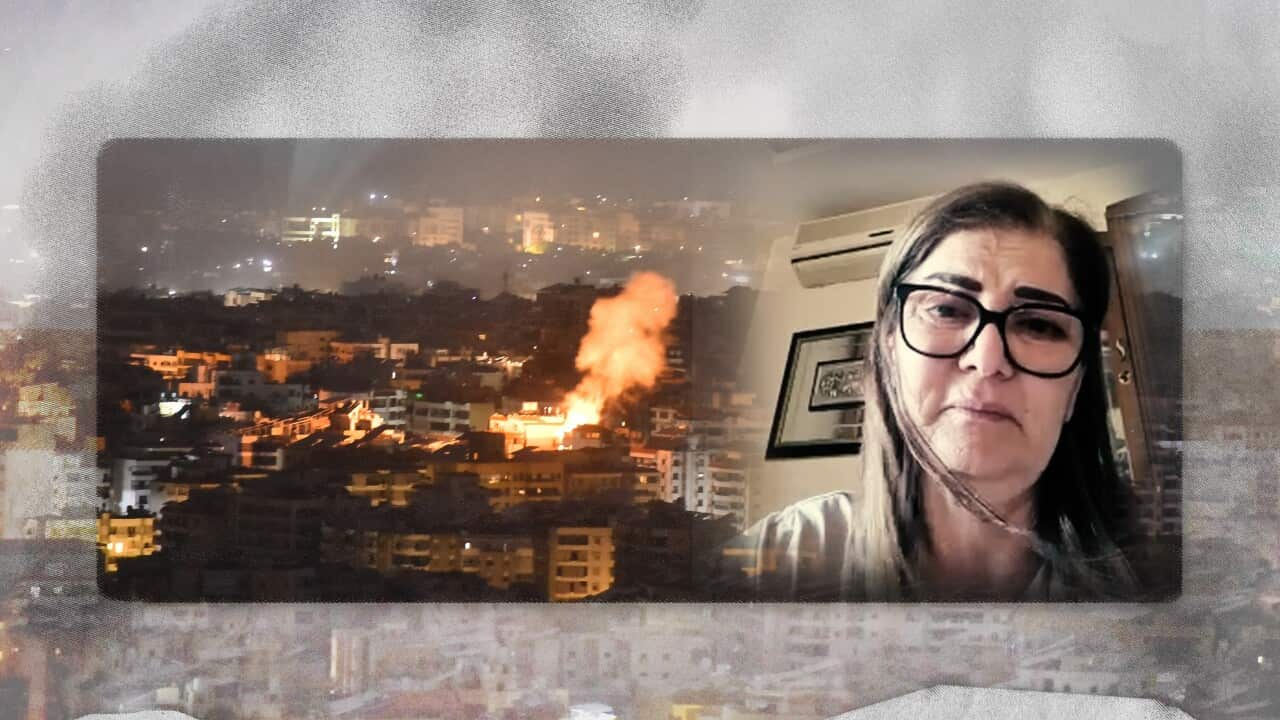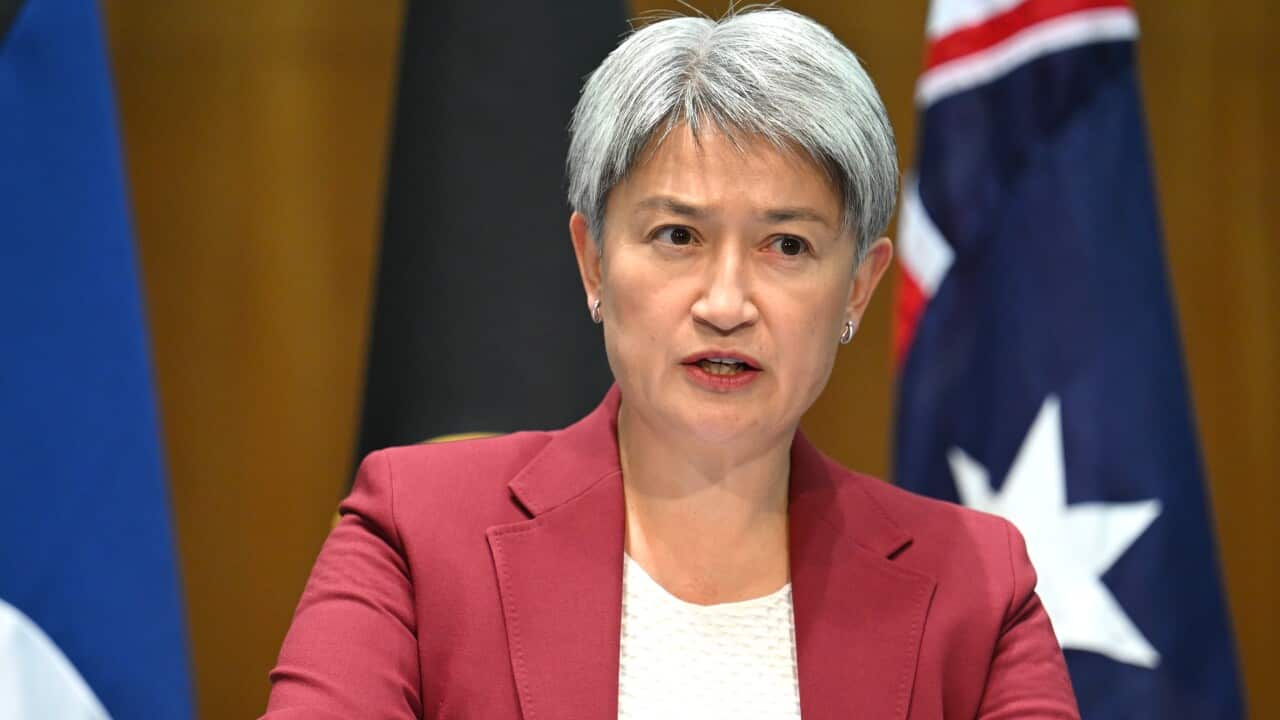Marie Shebl has spent the past two nights watching "fire" fall from the skies, as on its border with Lebanon.
Israel renewed its bombardment of parts of the nation's capital — Hezbollah has its headquarters in Beirut's southern suburbs — on Wednesday after being on the
When Shebl came to visit her 85-year-old mother three weeks ago, she didn't expect she would become "stuck" in Beirut.
"I know we were warned not to come, but nobody expected the situation to be so bad and so quick," she told SBS News.
"I have lived the war before, but this is something totally different because of nonstop bombing and it's more technology … So it really is scary the situation."
Shebl is among roughly 15,000 Australians being urged to evacuate Lebanon.
However, the aged-care worker says leaving is not so simple, with "threats everywhere".
"Even the way to the airport is very scary because it's in the area where they are attacking," she said, explaining the routes were under bombing from Israeli forces.
The 51-year-old mother from Sydney's west has followed government advice to book a commercial flight home, but the earliest ticket she could secure was for 11 October.
Tearing up about her desire to return home to her daughter and three grandchildren, Shebl's biggest fear now is her flight being cancelled as the situation in the region deteriorates.
Wong urges Australians to leave amid fears of airport closure
On Thursday, on "whatever option is available to you".
She confirmed the Department of Foreign Affairs and Trade (DFAT) had secured an additional 500 seats on two flights out of Beirut on Saturday as carriers diverted their routes.
It follows several commercial flights earlier in the week, including 80 seats on Thursday night, obtained by DFAT on behalf of Australian citizens in partnership with Canada and the United Kingdom.
However, Wong stressed they were dependent on Beirut airport remaining open.
"We are very worried about the situation escalating if Beirut airport closes, the options for departure become even less over the coming days and weeks, to continue to evacuate," she said.
SBS News understands the government has several contingency plans in place when it is no longer safe to fly, including evacuation via sea, similar to the mission undertaken during the 2006 war.
With a large Lebanese diaspora in Australia, Wong revealed 1,700 citizens and their immediate family members had registered with DFAT as wishing to leave Lebanon.
Leaving comes with many challenges, including securing a spot on limited flights out of Beirut as well as becoming stuck in other countries, with several Australians reportedly unable to find flights out of Dubai after getting out.
After enduring her second night of bombing in Beirut, Shebl said she feels "emotionally numb".
"In 1984, I left my country because of the war. Then, I left again in 2006. And look at it, the same history repeating itself. I don't know when we are to experience peace in Lebanon. The people are tired. I can sense the cry of my people. They are tired.
"Unless they cease fire, no one can escape because the big thing is going from here to the airport without risking your life."



